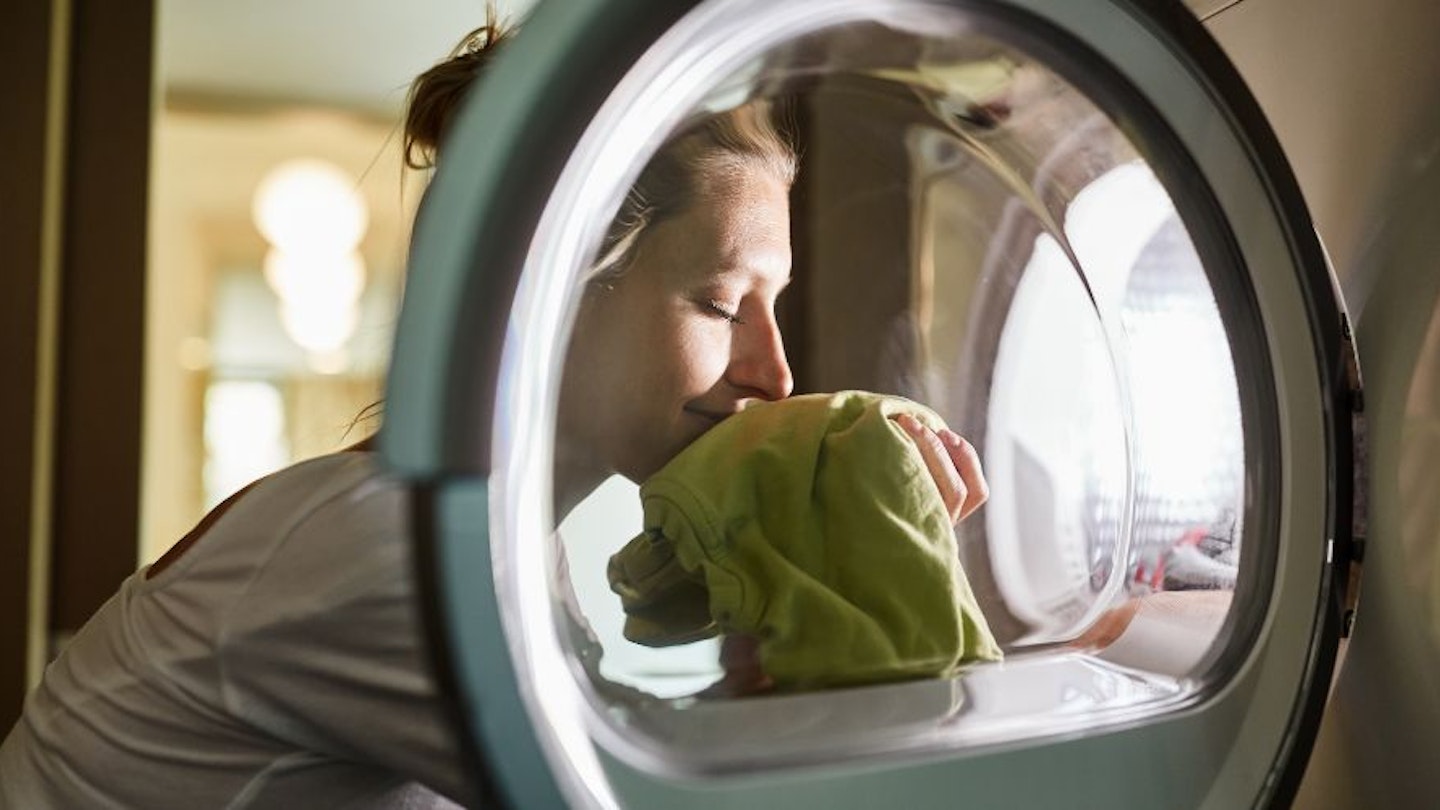We all want to do our bit to save the planet. If you're looking for an easy way to be more eco-friendly, one of the biggest things we can do to help is to cut down on our plastic use. A small change you can make that will make a difference is swapping your household cleaning products, such as washing detergents and fabric softeners, for plastic-free and eco-friendly alternatives. It isn't an easy job finding a plastic-free fabric softener. There aren't many options without using a single plastic. That said, most plastic-free fabric conditioners can be refilled to cancel out single-use packaging.
Does fabric softener have plastic?
Plastic packaging is common for fabric softeners, but it may surprise you that a lot of fabric conditioner formulas actually contain microplastics too. They're tiny but can be harmful to animals, damage the environment and cause allergic reactions in humans.
Worried about the plastics in your fabric softener? You're best to look for formulas that are eco-friendly and biodegradable. Most of the time, these formulas don't contain chemicals and additives that will harm the environment. If they do contain a small amount of microplastics, they should be compostable over time too. Not all eco-friendly fabric softeners are 100 per cent plastic free though, so be sure to check the label before you use one.
What fabric softeners are plastic-free?
As we mentioned above, there aren't many completely plastic-free fabric conditioners on the market currently. This is bound to change as pressure grows on companies to produce more environmentally-friendly products. The Clothes Doctor Eco Fabric Conditioner is one that we found that both the formula and packaging are plastic free. Miniml and ecoegg both use plastic packaging, but have refill initiatives to cut back on single-use plastic. If you're looking for a fabric conditioner that is kinder to the planet, consider eco-friendly fabric conditioners such as Bio D, Wilton London, and Ecover.
Whether you're looking to reduce the amount of plastic you use or want to crack down on non-recyclable plasticcompletely, there are options for everyone in our plastic-free fabric conditioner guide.
Best recyclable plastic-free fabric softener
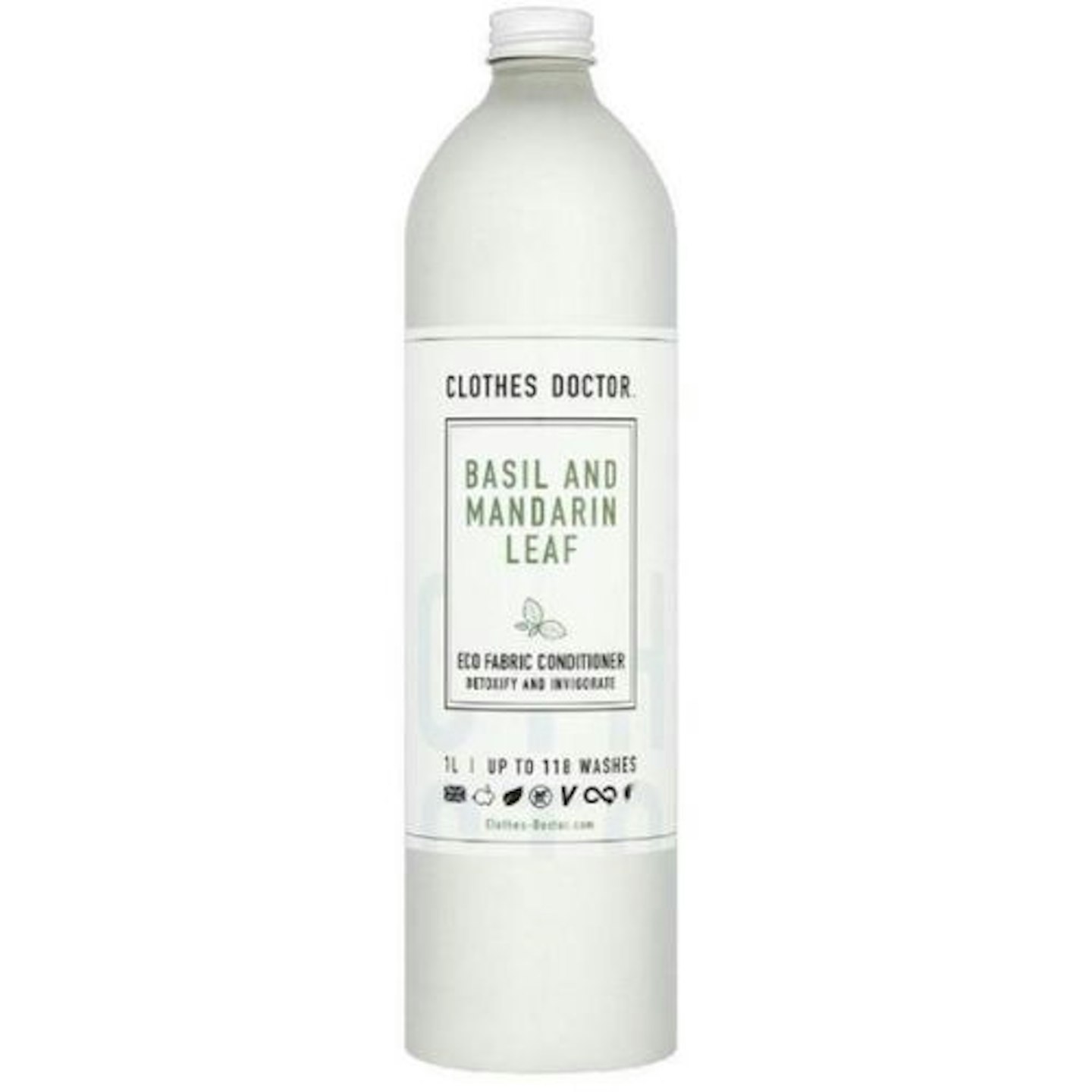
www.ocado.com
A fabric softener that has both plastic-free packaging and a plastic-free formula. The bottle is made 100 per cent from aluminium and the label is compostable too.
Review: "I use both the conditioner and detergent. Love them. The conditioner is really good. You only need a little. Smells lovely and natural. The packaging is eco-friendly. Great design. No going back for me. Good size. Looks smart in the kitchen."
Pros
- Palm oil free, nice smell
Cons
- Some customers felt like they had to put more than the recommended amount into their wash to get the nice smell, not as cost-effective as other fabric softeners
Bets biobegradable fabric softener
Made of sustainable and naturally derived raw materials, the Bio D fabric conditioner protects fibres, leaving laundry soft and static-free. It's hypoallergenic and fragrance-free, ideal for those with sensitive skin.
Review: "It may be thin but does a good job taking static out of clothes. I don't use more than I need, I only add a little more when washing jumpers & fleeces. It cannot be bad because I have come back for more! Great price. It gives me peace of mind knowing I help lessen pollution."
Pros
- Should last for around 110 washes
Cons
- You may miss that it doesn't have a scent
Made in the UK
Natural essential oils leave your laundry with a jasmine, ylang-ylang and sweet orange blossom scent. Its formulation uses naturally derived ingredients that are biodegradable and plant-based, so you won't find any nasty chemicals on the label.
Review: "Lovely scent to this fabric softener. Nice and subtle, can smell on clothes after drying but not overpowering. So my boys don't notice it. Lovely aroma through the house when drying washing and very relaxing too :)
I find one capful is perfect if not overdosing on washing detergent. If I needed a lot of detergent/rinses to my clothes I add a little more softener to compensate. Well worth the money and no problems with sensitive skin. I use this fabric softener (as uses essential oils that aren't endocrine disruptors, so safe for my boys) and whilst using another scent free washing detergent that is more affordable. Great combination."
Pros
- Two in a pack
Cons
- Doesn't last for as many washes compared to other plastic-free fabric softeners
Eco-friendly fabric softener
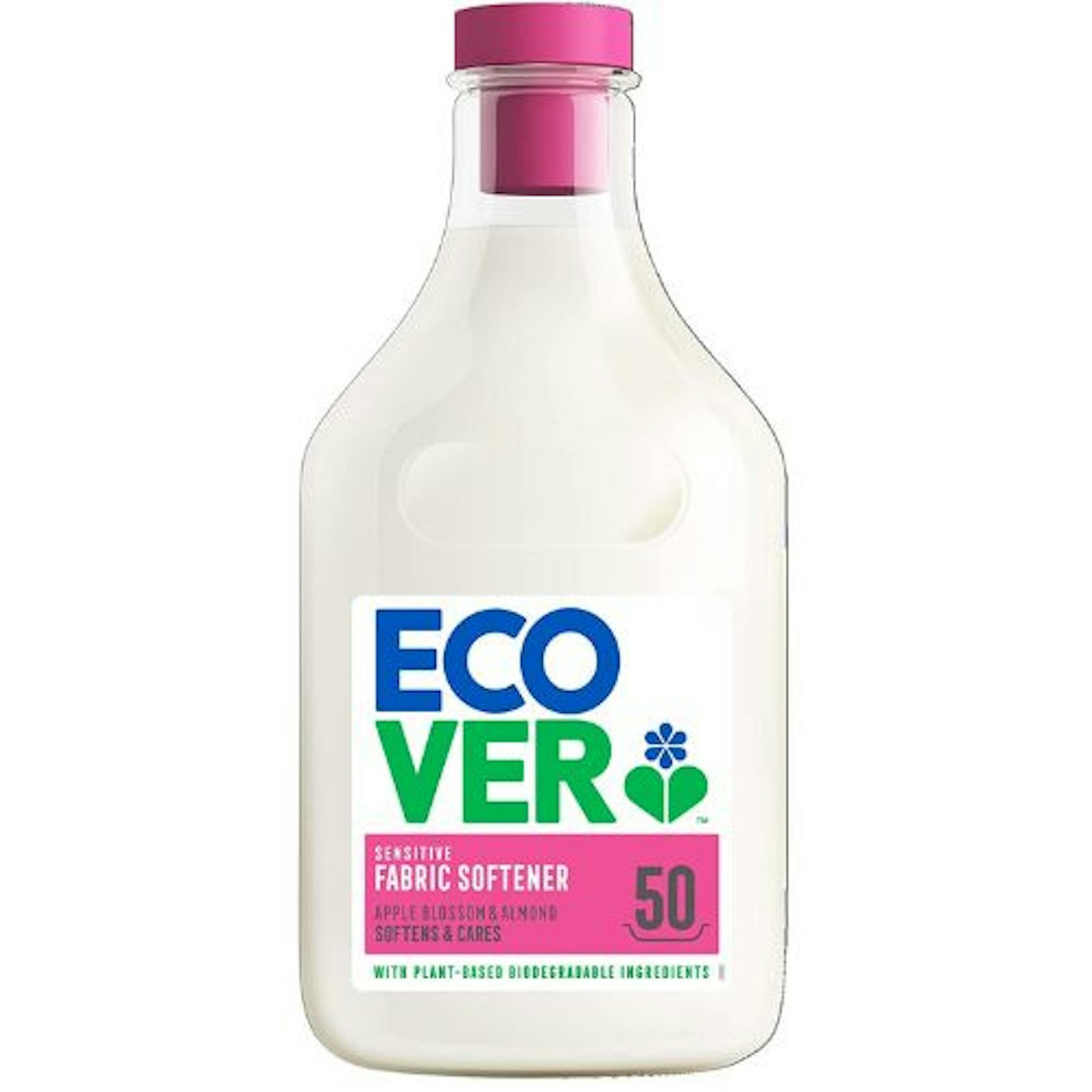
The bottle of this fabric softener is made using 100 per cent recycled materials and the formula is plant-based, so you know it's going to be good for the environment. Each of the 50 washes you'll get from this bottle will leave your clothes with the scent of apple blossom and almond.
Review: "Makes my laundry smell lovely, stay’s fresh even when it’s been in the airing cupboard for a couple of weeks before putting it on the beds."
Pros
- Cheaper than other plastic-free fabric softeners
Cons
- Some customers wished the scent was stronger
Paraben free and sulphate free fabric conditioner
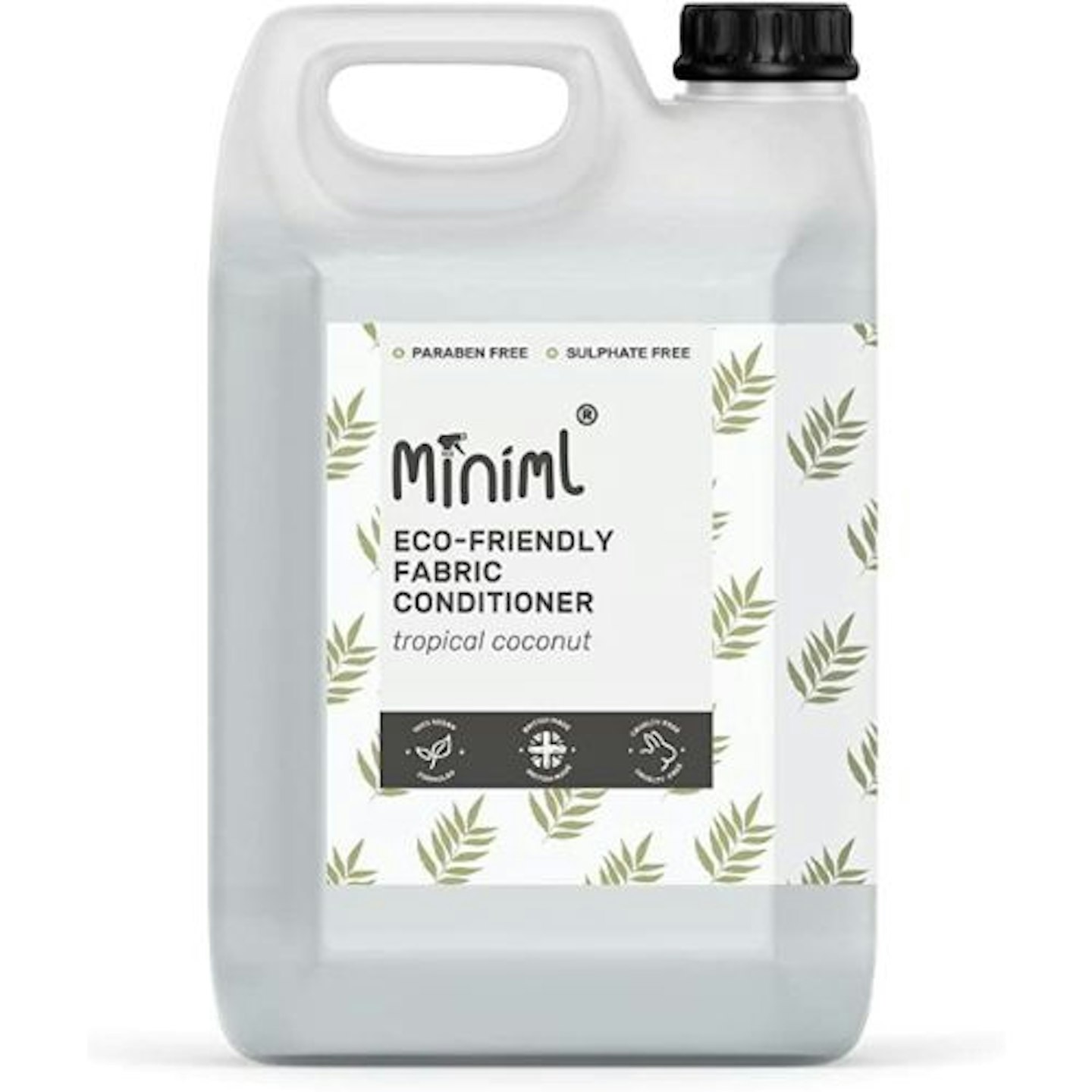
minimlrefills.co.uk
Give your clothes a deliciously tropical scent of fresh coconut using this minimal fabric softener. Once you've finished every last drop, you can return it back to the company for a refill to reduce waste!
Review: "Great value fanfic conditioner that doesn’t clog my dispenser drawer like some other brands. Lovely subtle fragrance. Leaves clothes soft."
Pros
- Contains 20 litres of product
Cons
- Some people might not be keen on the coconut smell
Detergent and fabric softener combined
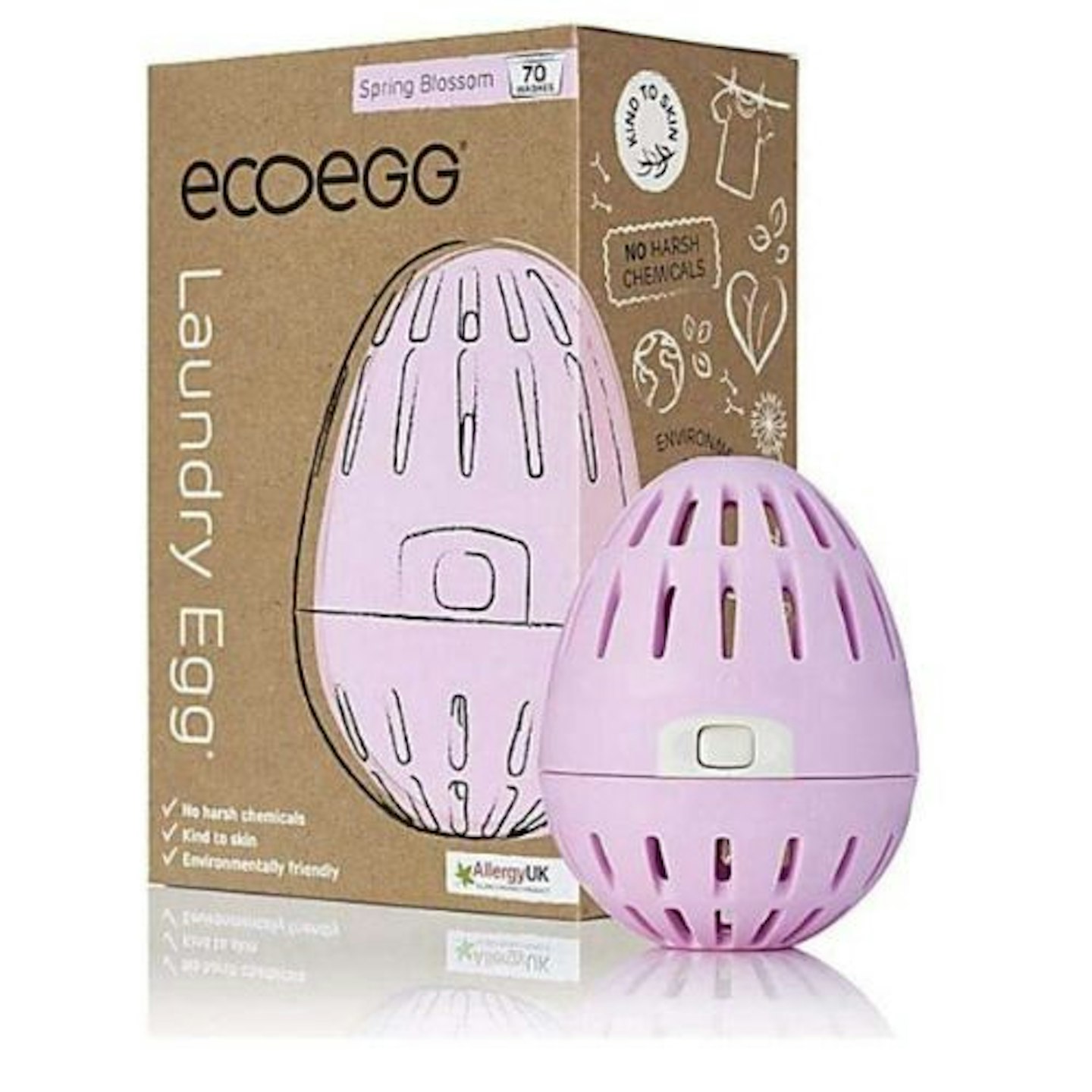
The ecoegg may have a plastic shell but as it's refillable and reusable, it could save you using up to 40 single-use plastic bottles from detergent and fabric conditioner each year. It's dermatologically tested, containing no enzymes, making the ecoegg ideal for those who are prone to detergent rashes and allergies.
Review: "I have been using this product for a couple of years now, I first purchased this when my son was born because I was concerned he may have sensitive skin. I purchase this product on this occasion to give as a gift to a family member, as I was so happy with my product they wanted to try this themselves. The scents you can select are lovely, the instructions are easy to read, and refills for the product are easy to get. This is a great eco friendly alternative that really doesn’t cost a lot. They only thing you may find is that the smell isn’t quite as strong/ doesn’t last as long. But you must understand that this is because they haven’t used lost of harmful chemicals in the product to create that artificial lasting smell. You don’t need to use fabric conditioner, but if you want a lasting fresh smell on your clothes using one in conjunction of this product may help keep that lasting freshness. The product washes clothes well, and can be used on low temperatures. You need to ensure the egg is allowed to dry between washes as this allows the longevity of the pellets. Overall this product is a really good eco-friendly product to use on your dirty clothes."
Pros
- Reduces single-use plastic use, detergent and fabric softener combined
Cons
- Some customers wanted a stronger smell, can be noisy when being spun around your washing machine
Plastic-free fabric softener FAQs
Is fabric conditioner bad for clothes?
We all love the smell and feeling of dry clothes that have been washed with fabric conditioner. However, did you know using them can actually be bad for your clothes? The soft feeling that you adore is created by the fabric softening coating your clothes. Over time, this coating builds up. Eventually, creating a barrier on your clothes that will lessen the effect of detergents. Ultimately, this will stop your clothes from becoming fully clean when you wash them.
Fabric softener build-up can affect the use of your washing machine too. It can block your filters and cause your washing machine to harbour bacteria. So, you may find your clothes will come out with an unpleasant, fusty odour.
A lot of the non-plastic-free fabric softeners contain chemicals that are more prone to creating washing issues. These chemicals can also cause irritation to your skin after you've worn items of clothing for a while.
